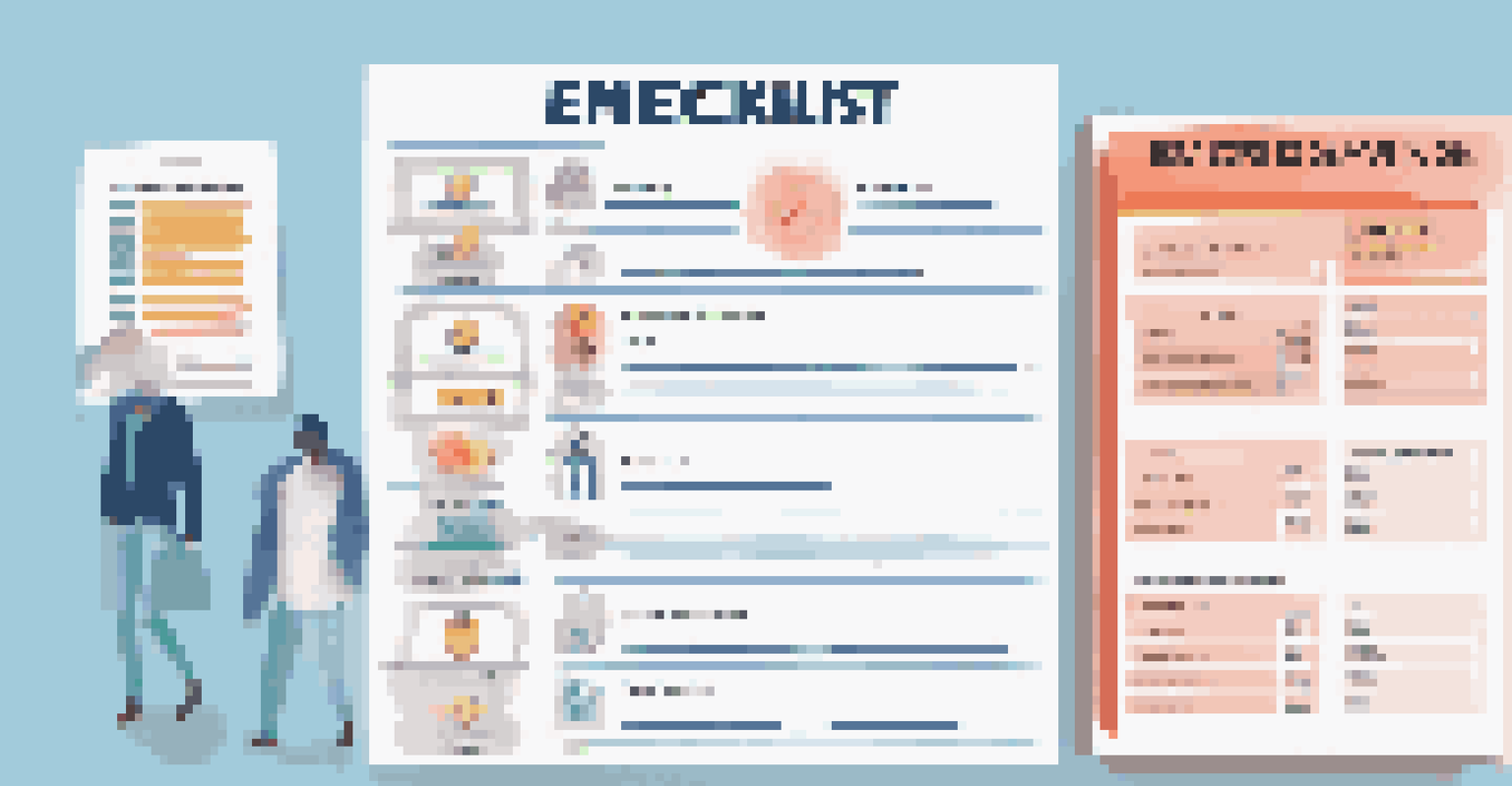The Importance of Reviewing Your Emergency Fund Regularly

Understanding the Purpose of an Emergency Fund
An emergency fund acts as your financial safety net, covering unexpected expenses like medical emergencies or car repairs. It's crucial to have this cushion, as it helps prevent you from falling into debt when life throws you a curveball. The goal is to have enough saved to cover three to six months' worth of living expenses, but the exact amount can vary based on your personal circumstances.
An ounce of prevention is worth a pound of cure.
However, simply having an emergency fund isn't enough; you need to ensure it remains adequate and accessible. As your life circumstances change—like moving to a new city or starting a family—your financial needs will evolve too. Regularly reviewing your fund ensures you’re prepared for whatever life may bring.
Think of your emergency fund like a car's oil; you wouldn’t ignore the maintenance just because the engine is running smoothly. Just as you check your oil regularly to keep the engine healthy, reviewing your emergency fund is essential to maintain your financial well-being.
Life Changes and Their Impact on Your Emergency Fund
Life is full of changes—new jobs, relocations, or even changes in family dynamics can significantly impact your financial situation. When these changes occur, it's vital to reassess your emergency fund to ensure it aligns with your current needs. For instance, a new job might mean a higher income, but it could also come with different expenses, such as commuting costs.

Additionally, if you’ve recently welcomed a new family member, your expenses may rise. More groceries, childcare, and other costs can quickly add up, so your emergency fund should reflect these new realities. If you fail to review your fund during such transitions, you risk being underprepared for emergencies.
Emergency Funds as Financial Safety Nets
An emergency fund acts as a crucial financial buffer against unexpected expenses, helping to prevent debt.
Think of it this way: just like you wouldn’t use the same suitcase for a weekend trip and a month-long vacation, your emergency fund needs to be tailored to your current life stage.
Inflation: The Silent Eroder of Your Savings
Inflation can quietly chip away at the purchasing power of your emergency fund. What seemed like a comfortable cushion a few years ago might not stretch as far today due to rising costs. For example, if your fund was initially set to cover three months of expenses, inflation may mean that it now only covers two months.
It's not how much money you make, but how much money you keep, and how hard it works for you.
Regularly reviewing your emergency fund helps you account for inflation and adjust your savings goals accordingly. It’s not just about how much money you have; it’s about how much that money will actually cover in the future. If you find that rising prices are impacting your savings, it might be time to boost your contributions.
In essence, staying ahead of inflation is like keeping a garden; if you don’t regularly tend to it, weeds (or in this case, rising costs) can take over and choke out your hard work.
Assessing Your Risk Tolerance and Financial Stability
Your risk tolerance plays a crucial role in determining the size of your emergency fund. If you’re someone who thrives on financial stability and prefers to play it safe, you might need a larger fund compared to someone more comfortable with risk. Understanding your personal comfort level with financial uncertainty is essential.
Additionally, your overall financial stability should guide how much you save. If you have debts or fluctuating income, you may want to prioritize building a larger emergency fund. Conversely, if you have a steady income and little debt, you might feel okay with a smaller cushion, but regular assessments are still essential.
Adjust Fund Size with Life Changes
Life changes like new jobs or family additions necessitate regular reassessment of your emergency fund to ensure it meets current needs.
Visualize your financial landscape as a tightrope; your emergency fund helps keep you balanced. If your risk increases, you need to reinforce that safety net to avoid a fall.
The Role of Interest Rates and Savings Accounts
The type of account where you keep your emergency fund can significantly affect its growth. High-yield savings accounts or money market accounts often offer better interest rates than traditional savings accounts. If you haven’t reviewed your account options recently, you could be missing out on potential earnings.
Regularly evaluating interest rates ensures that your emergency fund is not just sitting idle but is growing over time. This can make a meaningful difference, especially in the long run, allowing you to maintain your fund's purchasing power against inflation.
Think of your emergency fund like a garden; the right conditions can help it flourish. Choosing the right account is akin to planting in fertile soil—without it, your savings may not reach their full potential.
Setting a Routine for Regular Reviews
Establishing a routine for reviewing your emergency fund can make the task less daunting. Consider scheduling a quarterly review, where you assess not just your savings but also your overall financial health. This can include evaluating your budget, expenses, and any changes in your income.
By making this a regular habit, you ensure that your emergency fund is always in line with your current needs, and you’ll be more prepared for unexpected events. A simple checklist can help streamline the process, making it straightforward and manageable.
Regular Reviews Enhance Financial Stability
Establishing a routine for reviewing your emergency fund not only keeps it aligned with your financial situation but also boosts your confidence and peace of mind.
Think of it as a seasonal check-up; just as you wouldn't neglect your health, you shouldn't overlook your financial wellness. Regular reviews are your financial check-up, ensuring everything is in good working order.
The Psychological Benefits of a Robust Emergency Fund
Having a well-funded emergency fund can offer significant psychological benefits, providing peace of mind in uncertain times. Knowing that you have a financial cushion can reduce stress and allow you to focus on other aspects of your life. This sense of security is invaluable, especially when faced with unexpected challenges.
When you regularly review your fund, you reinforce that sense of security. You become more aware of your financial situation, which can empower you to make informed decisions and take calculated risks. It’s about building confidence in your financial strategy.

Imagine your emergency fund as a life jacket; it keeps you afloat during turbulent times. By ensuring it’s adequately funded and regularly reviewed, you can navigate life’s storms with greater ease and assurance.